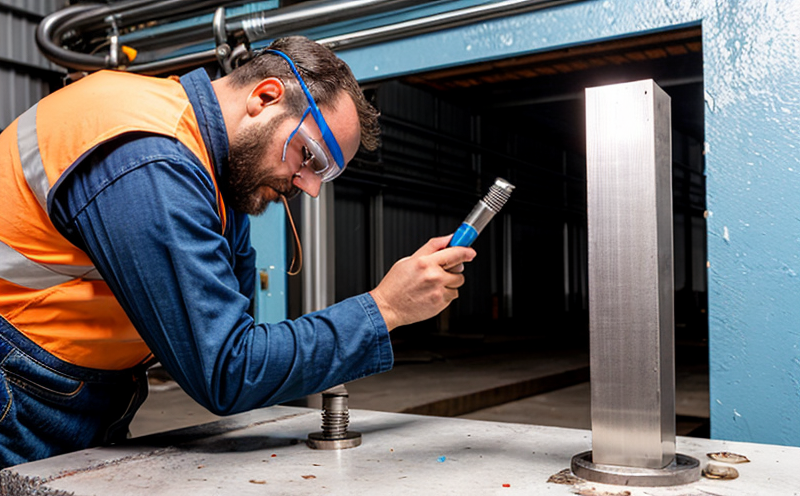Notch sensitivity testing for welded joints
Unlocking Reliable Welded Joints The Importance of Notch Sensitivity Testing
As manufacturers and industries continue to push the boundaries of innovation, ensuring the reliability and durability of welded joints has become an essential aspect of quality control. One critical test that plays a pivotal role in assessing the integrity of these crucial connections is notch sensitivity testing for welded joints. This laboratory service, provided by Eurolab, enables businesses to confidently determine the susceptibility of their welds to cracking under various stress conditions.
In this article, we will delve into the world of notch sensitivity testing and explore its significance in ensuring the structural soundness of welded joints. Well examine the benefits of using this test method, discuss its applications across industries, and answer frequently asked questions about this essential laboratory service.
What is Notch Sensitivity Testing for Welded Joints?
Notch sensitivity testing involves subjecting a weld to controlled stress conditions while monitoring its behavior under tension or compression. This test measures the ability of a welded joint to resist crack propagation when subjected to various loads, providing valuable insights into its overall reliability and longevity.
Key Benefits of Notch Sensitivity Testing for Welded Joints
Enhanced Product Reliability By identifying potential cracking issues early on, manufacturers can implement corrective actions, ensuring their products meet the highest standards of quality.
Reduced Risk of Failure This test method helps minimize the risk of catastrophic failure by highlighting areas where welds may be prone to cracking under various stress conditions.
Increased Efficiency Notch sensitivity testing streamlines the development process, enabling manufacturers to optimize their welding techniques and materials without compromising product integrity.
Compliance with Industry Standards Eurolabs notch sensitivity testing service helps businesses meet regulatory requirements and industry standards for welded joints, demonstrating a commitment to quality and reliability.
Applications Across Industries
Notch sensitivity testing is an essential tool across various industries, including
Aerospace Ensuring the structural integrity of aircraft components and ensuring compliance with stringent regulations.
Automotive Verifying the reliability of welds in critical components such as engine blocks, gearboxes, and chassis.
Energy Assessing the notch sensitivity of welds in pipelines, storage tanks, and other high-pressure equipment.
Construction Evaluating the durability of welds in building frames, bridges, and other structural elements.
QA Frequently Asked Questions About Notch Sensitivity Testing for Welded Joints
What is the purpose of notch sensitivity testing?
Notch sensitivity testing helps manufacturers identify potential cracking issues in welded joints, ensuring product reliability and compliance with industry standards.
How does notch sensitivity testing work?
The test involves subjecting a weld to controlled stress conditions while monitoring its behavior under tension or compression.
What types of materials can be tested using notch sensitivity testing?
Eurolabs laboratory service is suitable for various materials, including metals, alloys, and composites used in welded joints.
How long does the test typically take?
The duration of the test depends on factors such as material type, welding technique, and desired level of accuracy. Eurolabs experienced technicians will work closely with clients to determine the optimal testing schedule.
What are the benefits of outsourcing notch sensitivity testing to a laboratory like Eurolab?
By partnering with an experienced laboratory, businesses can access specialized equipment, expertise, and quality control procedures that ensure accurate and reliable results.
Conclusion
In conclusion, notch sensitivity testing for welded joints is a critical laboratory service provided by Eurolab. This essential test method helps manufacturers identify potential cracking issues early on, ensuring product reliability, reducing the risk of failure, and increasing efficiency. Whether youre in aerospace, automotive, energy, or construction industries, our state-of-the-art facility and expert technicians are committed to delivering accurate results that meet the highest standards.
By choosing Eurolabs notch sensitivity testing service, businesses can confidently ensure the structural soundness of their welded joints, ultimately driving innovation, efficiency, and reliability across various sectors.




